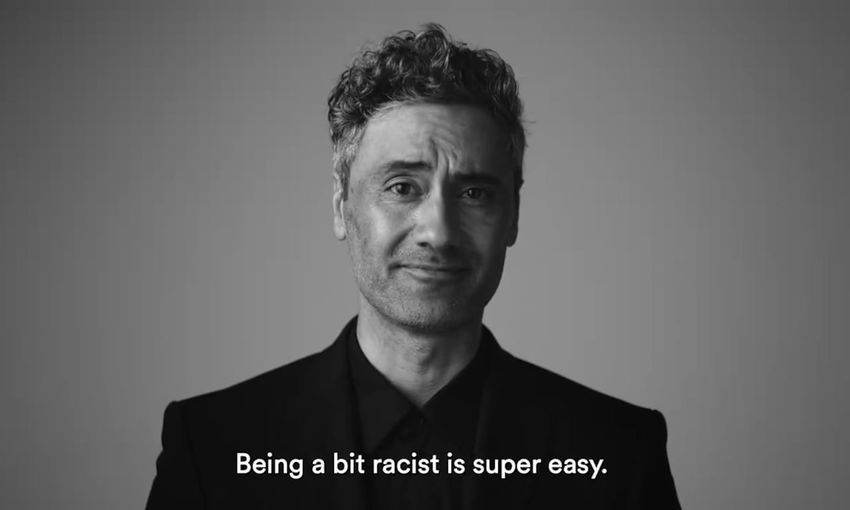Racism in Aotearoa

Pacific communities have been shocked and horrified at the racist online vitriol hurled at the Auckland University co-Head of the School of Māori Studies and Pacific Studies - Dr Jemaima Tiatia - after her RNZ Pacific interview about her experience of racism in her sector.
In her interview Dr Tiatia shared that academia can be a lonely place at the top for a brown female leader navigating power at “the intersection of hypervisibility, invisibility, colourism and gender.”
Touching on real-life examples, she spoke candidly about institutional racism, sexism and feminism, as seen through her eyes. She related how important it is to have a thick skin, and what resilience means when you’re in complex and sometimes hostile environments.
A message left on her answer phone is indicative of the underlying racist sentiments that many New Zealanders seem to be feeling towards immigrants, as other racist attacks come to the fore.
Full audio of the racist rant below
Taika Waititi - New Zealander of the year received media criticism for famously stating that NZ was a racist place to live, after his experiences of being racially profiled as a teenager.
"It's racist as f**k," he told UK magazine Dazed.
"I think New Zealand is the best place on the planet, but it's a racist place. People just flat-out refuse to pronounce Māori names properly."
Waititi added that people in Auckland in particular are "very patronising" for praising how well he has done "for one of his people".
"There's still profiling when it comes to Polynesians. It's not even a colour thing - like, 'Oh, there's a black person.' It's, 'If you're Poly then you're getting profiled.'"
Other incidents include racially targeted bullying at the University of Auckland.
In March of this year, a group of Pacific Island students at the University of Auckland were victims of racist comments made by their peers on an anonymous Instagram page. The students are residents of the University hall Ororke. Where they were compared to “planet of the apes” on a page called Ororkeconfessions.


A recent attack on two Japanese siblings in Christchurch have left a family traumatised and motivated to speak out - but many immigrant families remain silent.
The siblings were out running when they were attacked by two youths, leaving the brother, 14, in Christchurch Hospital with a concussion.
The sister (17yrs) said they didn't realise they were being chased until two European males aged about 17-19yrs tried to trip her brother up and after failing to do so, put him in a headlock.
Stuff reported that the brother managed to escape his attackers grip, but the pair continued to harass them, saying “you ate my dog”.
He was then punched in his left eye, blurring his vision. His sister tried to intervene, getting a strong kick in the shin.
“I wasn’t scared, but I was concerned about my brother because he was the target,” she said.
His sister said they wanted to share their story to raise awareness of racial abuse as they did not think it would ever happen in the “diverse city” they were born in.

We all have the right to be treated fairly, with respect and to be free from unwelcome racial discrimination.
- We all have the right to the equal enjoyment of civil, political, economic, social, and cultural rights
- All Indigenous peoples are entitled to self-determination (to choose their political status and the way they want to develop) and the protection of their language, culture, heritage, and relationship to the environment
- We all have the right to enjoy one's culture and to use one's own language
- We all have the right to freedom of religion and belief.
- We all have the right to be treated with respect, dignity and equity. We also have the right to not be harassed, taunted or teased because of our colour, our accent, the way we dress, the food we eat or anything else related to our race or ethnicity.
